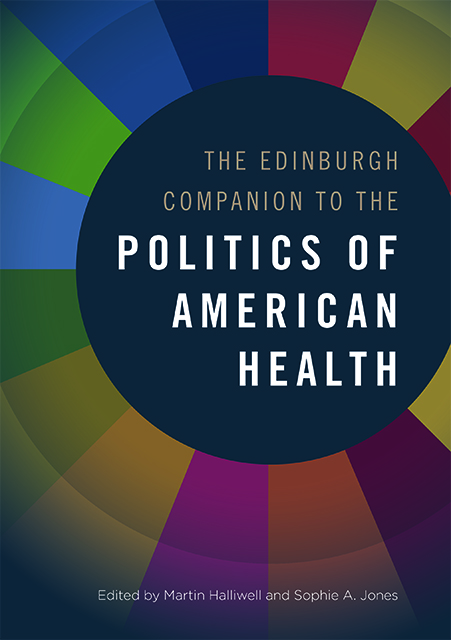Book contents
- Frontmatter
- List of Contents
- Notes on Contributors
- Introduction: The Political Landscapes of American Health, 1945–2020
- I Geography, Community and American Health
- II Critical Health Conditions: Debates and Histories
- III The Politics of Children's Health
- IV The Institutional Matrix of Health Care
- V The White House, Congress and Health Reform
- VI Justice, Ethics and American Health
- VII Public Health and Global Health
- General Bibliography
- Index
22 - Medicare and Medicaid after the Great Society: Containing Costs, Expanding Coverage
Published online by Cambridge University Press: 12 August 2023
- Frontmatter
- List of Contents
- Notes on Contributors
- Introduction: The Political Landscapes of American Health, 1945–2020
- I Geography, Community and American Health
- II Critical Health Conditions: Debates and Histories
- III The Politics of Children's Health
- IV The Institutional Matrix of Health Care
- V The White House, Congress and Health Reform
- VI Justice, Ethics and American Health
- VII Public Health and Global Health
- General Bibliography
- Index
Summary
President Lyndon Johnson's Great Society is often viewed through the lens of his anti-poverty programs created by the Economic Opportunity Act of 1964. The goal of the Office of Economic Opportunity (OEO) was to help lift people out of poverty through ambitious programs including job training, local health clinics, housing, Head Start and community action. Yet as programs initially designed to help poor families became entangled in the struggle for racial justice, they created a white backlash against them and, in less than a decade, most of the OEO programs were cut back, dismantled or eliminated entirely. From this perspective the Great Society was a failure. What is often forgotten, however, is the Great Society's signature achievement: two new public health insurance benefits, Medicare and Medicaid. Created by the Amendments to the Social Security Act of 1965, these benefits have become President Johnson's most enduring legacy.
Although Medicare and Medicaid were both entitlements, meaning that there were no limits on federal funding, they also differed in important ways. Medicare was a universal benefit that was granted to an earned right to all individuals who qualified for Social Security. By contrast, Medicaid eligibility was a jointly funded federal state program tied to Aid to Families with Dependent Children (AFDC), the welfare benefit for indigent mothers. This bifurcated structure was not unique to the health insurance programs, but rather it replicated the existing structure of the US welfare state, with one program for the ‘deserving’ elderly and another for the ‘undeserving’ poor. Unlike Social Security and AFDC, however, which provided funds directly to beneficiaries, Medicare and Medicaid paid providers for delivering services. This payment structure gave other interest groups – in particular, hospitals, physicians and insurance companies – a stake in all future decisions and a voice in all future debates.
This chapter first examines the challenges of implementing two new programs with different eligibility rules and designed to insure different populations. It then describes efforts over more than half a century to balance two competing objectives: expanding coverage and controlling costs. Finally, it explains how the Patient Protection and Affordable Care Act of 2010, forty-five years after the Social Security Act Amendments, added some provisions to Medicare to improve quality while moving Medicaid to the centre of efforts to reach universal coverage.
- Type
- Chapter
- Information
- The Edinburgh Companion to the Politics of American Health , pp. 375 - 388Publisher: Edinburgh University PressPrint publication year: 2022



